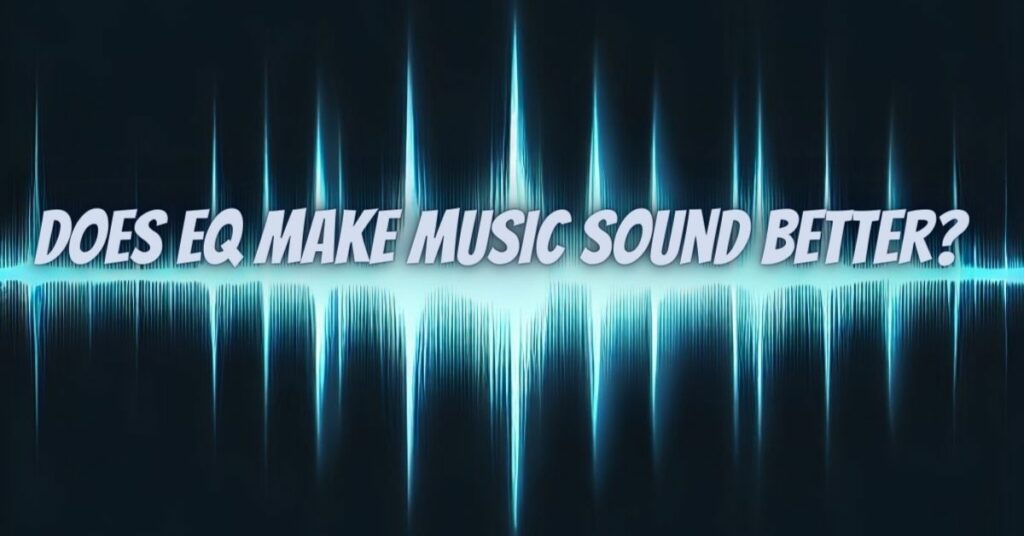Whether or not EQ makes music sound better is a subjective question. Some people believe that EQ is essential for creating a good sound, while others believe that it is best to leave the music as it is.
Benefits of using EQ
There are a number of benefits to using EQ, including:
- Improved mix balance: EQ can be used to adjust the levels of different frequency bands in a mix, which can help to make the music sound more balanced. For example, if the bass is too loud, you can use EQ to cut the bass level slightly. This can help to make the vocals and other instruments more audible.
- Increased clarity and detail: EQ can be used to boost the levels of certain frequency bands, such as the high-mids, which can make the music sound more clear and detailed. For example, if the vocals are sounding muddy, you can use EQ to boost the high-mids slightly. This can help to make the vocals sound more crisp and intelligible.
- Correction for room acoustics: EQ can be used to correct for the acoustics of the room in which the music is being played. For example, if the room has a lot of hard surfaces, you can use EQ to cut the high frequencies slightly to reduce the amount of reflection. This can help to make the music sound less harsh and fatiguing.
- Creation of a specific mood or atmosphere: EQ can be used to create a specific mood or atmosphere for a piece of music. For example, if you want to create a dark and atmospheric sound, you can use EQ to cut the high frequencies and boost the low frequencies. This can help to create a sense of suspense and mystery.
Drawbacks of using EQ
However, there are also some potential drawbacks to using EQ, including:
- Artificial sound: If EQ is used incorrectly, it can make the music sound artificial or unnatural. For example, if you boost the high frequencies too much, the music can sound harsh and fatiguing.
- Hiding problems: EQ can be used to hide problems with the recording or mix, such as poor mic placement or bad performance. However, it is important to address these problems directly rather than using EQ to mask them.
Overall, whether or not EQ makes music sound better is a matter of opinion. EQ is a powerful tool that can be used to improve the sound of music, but it is important to use it carefully and thoughtfully.
Here are some additional tips for using EQ effectively:
- Use EQ sparingly. A little bit of EQ can go a long way. It is better to start with a small amount of EQ and increase it gradually until you are happy with the sound.
- Use EQ to make the music sound more balanced. EQ should be used to adjust the levels of different frequency bands in a mix so that all of the instruments and vocals can be heard clearly.
- Use EQ to correct for room acoustics. If you are playing your music in a room with a lot of hard surfaces, you may need to use EQ to cut the high frequencies slightly to reduce the amount of reflection.
- Use EQ to create a specific mood or atmosphere. EQ can be used to create a dark and atmospheric sound, a bright and cheerful sound, or anything in between. Experiment with different EQ settings to find a sound that you like.
If you are new to using EQ, there are a number of resources available online and in libraries that can help you to learn more about how to use EQ effectively.
Additionally, it is important to note that EQ is not a magic bullet. It cannot fix a bad recording or mix. However, it can be used to improve the sound of a good recording and mix.


